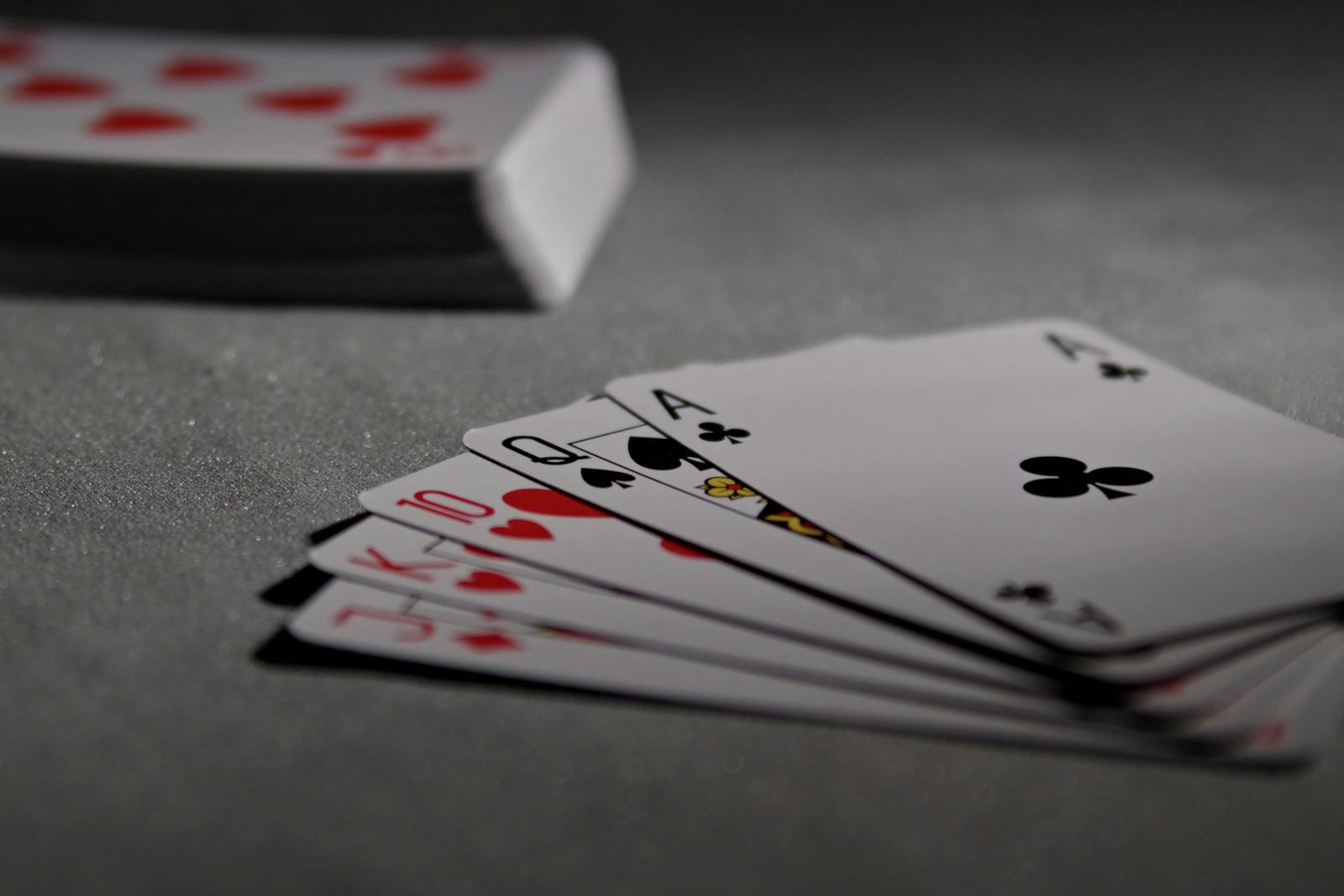Emotions Management in Poker
In poker, like many other games, emotions can significantly impact your decisions. Emotions such as anger, happiness, stress, and anxiety can lead you to make poor decisions. Poker is a strategic game that requires high attention and concentration. When your emotions take over the game, you may make hasty decisions that ultimately work against you.
For example, if you have a weak hand but continue to play due to the excitement from previous wins, you may experience a large loss. On the other hand, if you feel hopeless due to consecutive losses, you might place riskier bets to make up for previous failures, which can lead to even worse results.
How your emotions affect the game depends on how you control them. In fact, controlling emotions in poker is one of the most important skills a player must learn. Every player should be able to play carefully and logically when faced with both positive and negative emotions.
Why can emotions be harmful? When you win a hand or lose with a weak hand, your emotions may be triggered and influence your decisions. Positive emotions like happiness can cause you to bet more than you should, which may lead to strategic mistakes. On the other hand, negative emotions like anger and frustration can lead you to make quick, unthought-out decisions, such as bluffing too much or continuing to play with weak hands.
A key point in poker is that nothing is certain. Even if you have a strong hand, you might still lose the game. Controlling your emotions can help you make more logical decisions during both victories and losses.
How to control emotions? To control emotions in poker, the first step is to be aware and realize when emotions are affecting your game. The best way to do this is to take a deep breath before every hand and focus on the game. When losing, it’s best to step away from the game for a moment and give yourself time to relax. When winning, you should avoid excessive excitement and stick to your strategic decisions.
Ultimately, poker is a mental game where you need to focus on strategy and logical decision-making. Learning to control emotions is one of the key skills that can make you a successful poker player.
Strategies for Maintaining Calm in Poker
In poker, one of the most important skills is the ability to maintain calm in stressful situations. Given the competitive nature of the game and the pressures that may arise during consecutive wins or losses, maintaining calm is one of the essential factors for success in this game. If you cannot control your emotions, you may make wrong decisions that will cost you the game.
Why is calm important? In every poker hand, you must make decisions that affect the outcome of the game. If you are excited or nervous, you may make illogical decisions that ultimately lead to a loss. Staying calm helps you avoid emotional decisions and focus on strategy and analyzing the game.
A professional poker player always remains calm, even when experiencing consecutive losses or in difficult situations. These players use various strategies to keep their minds calm and avoid risky decisions.
How to maintain calm? To maintain calm in poker, the best thing is to take a few moments away from the game. If you get nervous or worried during the game, take a moment to breathe deeply and distance yourself from the game. When emotions overpower you, you can even step away from the table for a few minutes. This will help you refocus and make logical decisions without emotional interference.
Also, one of the effective techniques for maintaining calm is learning stress management. You need to learn how to react in stressful situations. One simple way to manage stress is deep breathing. With every deep breath, your body relaxes, and you can regain better control over your state of mind. This will help you maintain a calm mind when faced with tough situations.
Using Mental Focus: Focus is another factor that can help you maintain calm. When your mind is focused on strategy and decision-making, you are less affected by emotions. To enhance your focus, try to think only about the game and avoid any distractions during the game.
Practical examples of maintaining calm: Imagine you’re playing and lose an important hand. You might unconsciously feel frustration and anger. In these moments, you must decide whether to take advantage of these emotions or control them. If you maintain your calm, you’ll be able to make the best decision in the next hand and avoid emotional decisions.
In long games, your calmness should remain steady. Many players get tired over time and start making hasty decisions. To avoid this, you should take short breaks and preserve your energy throughout the game.
Conclusion: Staying calm in poker is not only essential for avoiding emotional mistakes but also for making strategic decisions and ensuring long-term success in the game. By learning emotion management and calmness techniques, you can elevate your game and benefit from it.
The Importance of Patience in Poker: Why Patience is Key to Success
One of the key traits that every poker player should have is patience. Poker, unlike other fast-paced games, is a long-term game that requires decisions to be made with precision. Many beginner players tend to play fast and use short-term strategies due to excitement. However, to succeed in poker, you need to learn to be patient and play every hand carefully based on the actual odds.
Why is patience necessary in poker? When you have a weak hand, the only logical option is to fold and wait for better hands. Patience in these situations allows you to avoid losing money and making poor decisions. At the same time, when you have strong hands, patience helps you place heavier bets at the right time and gain maximum value from your opponents.
A common mistake among beginner players is thinking that they must play every hand, even when their hand is weak. This behavior causes them to quickly lose their money. In contrast, professional players usually avoid playing weak hands and only enter the game when they have suitable hands with a good chance of winning. This patience and careful hand selection is one of the key differences between professional and amateur players.
Patience versus haste: Many beginners, when feeling angry or stressed, make hasty decisions. These decisions are often based on temporary emotions and are far from logical strategies. For example, you might decide to continue with a weak hand or bluff due to consecutive losses or frustration. But these decisions usually end up costing you.
In contrast, when you wait patiently and make careful decisions, you are likely to fold weak hands and enter the game when you have strong hands in a good position to win. This not only increases your chances of winning but also puts you in a better position to make better decisions in challenging situations.
How to practice patience in poker? One way to practice patience is to stop playing when you find yourself in weak situations and take a break. This break can help you regain focus and avoid hasty decisions. You can also take notes on past games and hands and use them as experience for future games.
The challenges and their importance: Playing in times of discomfort, anger, or frustration can be tough, but if you can control these emotions and maintain patience, you will ultimately be more successful. Learning patience allows you to make better decisions continuously and become a successful player.
Conclusion: Patience in poker is one of the most important strategies for beginners. This quality helps you make more precise decisions during critical moments and avoid common mistakes. Practicing patience and making logical decisions will gradually turn you into a more professional player.
Managing Stress and Anxiety: How to Control Your Stress in Poker
Poker is one of the games highly sensitive to stress and anxiety. In every hand, the pressure to make the right decision can lead to stress. This stress especially increases during long games or when you are in unfavorable positions. To succeed in poker, you must learn how to manage these feelings and maintain your focus.
Why is stress natural in poker? Stress in poker is part of the game. You face different risks with every hand, and this inherently creates stress. Especially when there’s a lot of money on the table or you’re playing against professional opponents, the mental pressure can be high. However, stress should not influence your decisions. In fact, learning how to manage stress is one of the key skills in poker that can distinguish you from your competitors.
How to control stress? The first step in managing stress in poker is to identify the situations that trigger anxiety in you. When you are experiencing consecutive losses or find yourself in a position with low chances of winning, stress may unconsciously creep into your mind. In these moments, it’s important to stop and step away from the game to calm your mind.
One effective technique for managing stress in poker is practicing deep breathing. With each deep breath you take, your body relaxes, and you can regain your focus. Also, when stressed, try to avoid negative thoughts and focus on your strategies in the game.
Strategies for reducing stress in poker: One strategy to reduce stress is to constantly remind yourself that it’s just a game and each hand is only a part of the overall game. Don’t let any win or loss affect your emotions too much. This mindset helps reduce the mental pressure of the game and allows you to make more logical decisions.
Also, another effective method for reducing stress is taking short breaks. When the game becomes highly competitive and exciting, you might need a quick break to recharge. These breaks can help you distance yourself from the stress and continue playing with a clearer mind.
Can stress affect your decisions? Yes, stress can significantly impact your decisions. In stressful situations, players often continue with weak hands or make quick, illogical decisions. These decisions usually lead to losses. This is why managing stress and anxiety plays a crucial role in success in poker.
Conclusion: Managing stress in poker helps you maintain your calm and make smarter decisions. To succeed in poker, you must learn to control stress and avoid its negative effects on your game. By practicing and using stress control techniques, you can become a more successful poker player.
Mental Focus Techniques: How to Stay Focused in Long Games
Poker, especially in long games, requires high focus and precision in decision-making. Maintaining mental focus helps you avoid hasty decisions and mistakes caused by fatigue or distractions. In this section, we will cover techniques that can help you stay focused throughout long games and continuously make smarter decisions.
Why is focus important in poker? In long poker games, mental and physical pressure can affect your performance. Players who cannot maintain focus often make strategic mistakes. For example, you may become fatigued in the middle of the game and make aggressive or rash decisions. These decisions can easily work against you. At the same time, maintaining focus allows you to carefully analyze your opponents’ behavior and make logical decisions based on that.
How to maintain focus in long games? One effective way to maintain focus is by breaking the game into smaller segments. Instead of viewing the game as one long event, divide it into smaller rounds and focus on each round. This will help you avoid the emotional weight of big losses or exciting wins and keep your mind focused on the game.
Another helpful technique for maintaining focus is deep breathing. Deep breathing helps you stay calm and reduces stress from the game. With each deep breath, you can give your mind a break and refocus. This is especially useful during highly competitive and exciting moments in the game.
Short breaks: In long games, your mind may become fatigued. One of the best ways to combat this issue is by taking short and regular breaks. Even a five-minute break can help you regain focus and continue playing with a fresh mind. Additionally, breaks give you the opportunity to avoid rash or emotional decisions.
Avoid distractions: Another important point for maintaining focus is avoiding distractions. During the game, your phone, TV, or anything else that might divert your attention can decrease your focus. Therefore, during the game, try to concentrate solely on the game and your decisions. This will help you make the best decisions throughout the game.
Why is rest and rejuvenation important? Many players in long games might forget to take a break. However, resting allows you to regain your energy and focus. If you feel your focus waning or are prone to mistakes, step away from the table and restore your calm.
Conclusion: In poker, maintaining focus during long games is one of the most critical factors that can set you apart from your competitors. By using simple techniques like breaking the game into smaller rounds, practicing deep breathing, and taking short breaks, you can stay focused and perform more effectively in poker. Remember, focus in poker is a skill that improves with practice and experience.
Learning from Losses: How to Learn from Defeats
One of the greatest challenges every poker player faces is losses. While victories can be sweet and motivating, losses can easily affect a player’s emotions and mindset. Many beginner players, when they lose, feel hopeless and angry and make bad decisions. However, the most important point is to use losses as opportunities for learning and to use them to improve your skills.
Why are losses important? Losses are a natural part of poker. No player can always win. Even the best players sometimes lose. What makes the difference is how you handle these losses and learn from them. Each loss is an opportunity to review and analyze your strategies and learn from your mistakes. In short, losses can make you a better player if managed properly.
How to learn from losses? The first step in learning from losses is analyzing past hands. After every game, especially after big losses, review the hands you’ve played and see if you made mistakes in selecting hands, strategies, or decisions. For example, did you play with a weak hand? Did you take excessive risks in a situation with low chances of winning?




